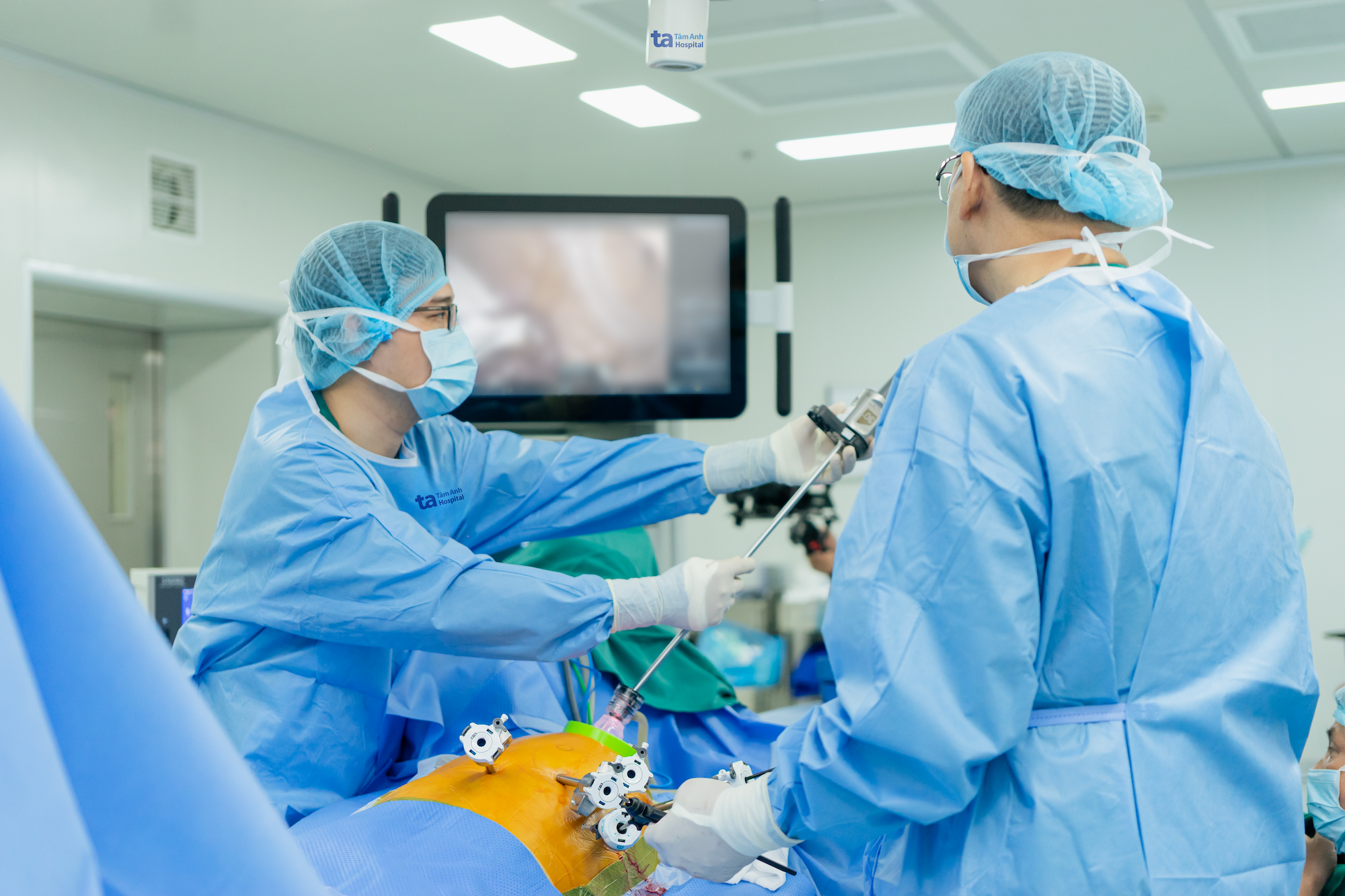During an endoscopy of Vuong’s stomach, Dr. Do Minh Hung, Director of the Center for Endoscopy and Gastrointestinal Laparoscopic Surgery at Tam Anh General Hospital in TP HCM, discovered several lesions on the congested surface of the stomach lining. On the lower part of the greater curvature, there was a concave lesion, measuring 10-12 cm, which had altered the surface structure and blood vessels.
A biopsy was performed to determine the nature of the lesion. The results revealed that Vuong had stage three invasive adenocarcinoma. The cancer cells had penetrated the mucosal layer and begun to spread deeper into the stomach wall and adjacent structures. While the cancer was advanced, it had been detected relatively early. After consultation, doctors decided to perform a robotic-assisted laparoscopic surgery using the Da Vinci Xi system to remove the portion of the stomach containing the tumor and thoroughly dissect the lymph nodes.
 |
A doctor inserting a trocar (endoscopic instrument) to connect to the robotic arm. Photo: Tam Anh General Hospital |
Dr. Hung explained that partial gastrectomy is a complex major surgery, especially with radical lymph node dissection. This is because the stomach and surrounding organs have many large, important blood vessels near critical structures such as the pancreas, spleen, duodenum, and bile ducts. The robotic system allowed for precise and flexible dissection in difficult-to-reach areas, ensuring complete lymph node removal without damaging nearby structures.
During the surgery, doctors observed that the liver, peritoneum, peritoneal cul-de-sac showed no signs of metastasis, and the abdominal cavity was free of fluid. However, there were several lymph nodes near the greater curvature of the stomach. The doctors removed the 5 cm tumor and the affected lymph nodes.
Post-operatively, Vuong experienced minimal pain, his incision remained dry, and he was able to walk and consume liquids. He was discharged after 5 days. The pathology report confirmed stage 1B invasive adenocarcinoma with 24 inflamed lymph nodes and no metastasis. All cancerous cells were successfully removed, resulting in complete eradication of the cancer. Vuong requires no further treatment but will undergo regular check-ups.
Early detection of stomach cancer, before metastasis occurs, significantly improves treatment outcomes and prognosis. However, in its early stages, stomach cancer often presents with no symptoms or vague symptoms easily mistaken for common digestive issues. Dr. Hung recommends regular screenings for individuals with risk factors such as family history, H. pylori infection, or chronic atrophic gastritis.
Quyen Phan
*The patient's name has been changed.
| Readers can submit questions about digestive diseases here for doctors to answer. |












